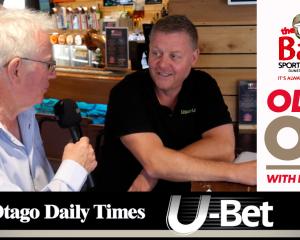
They were two issues discussed at the Otago Polytechnic Institute of Sport and Adventure’s high performance sport symposium yesterday.
Edmond Otis, of the Eastern Institute of Technology, delivered a presentation on sideline behaviour at sporting events, in particular youth events.
He said negative behaviour from fans and parents had the potential to drive talented athletes away from a sport, so educating them on how to avoid that was important.
He had worked with Sport Hawke’s Bay since 2012, launching a campaign to try to spread the word about being the type of fan that will benefit the athlete.
This campaign involved the fans, parents and wider community being part of the team, meaning they too had to play their role well.
Through targeting coaches and getting them to buy in to the concepts of showing positive support, it was hoped the message would trickle down to players, officials and the wider public.
It had initially been up to individual sports to take up the idea and the campaign was there to support them should they choose to do so.

The next phase would be to go into those individual codes and to try to create the best fans they could.
Feedback so far suggested things were working and 65% of people surveyed said they felt the campaign had a positive impact.
Otis added that in surveys often people would not say when they are satisfied with things, meaning that number could be higher in reality.
Meanwhile, Dr Ihirangi Heke, formerly a lecturer at the University of Otago, explained a framework bringing a Maori approach to health.
The framework suggested health should be seen as environment-centred, as opposed to individual-centred, and people could become a reflection of the space they were from.
Groups and individuals could obtain knowledge from their environments, with which they could then with and interpret.
This then impacted on one’s actions as they learned what was required to do something in their environment and how best to do it.
That could be seen in the likes of people that live in a mountain environment knowing how to cope with high altitude and snow.
Likewise, those who lived near the water may have developed a unique way of swimming best suited to their own body of water.
Dr Heke said the end point of that could be being able to tell where someone was from by the way they moved or swam.
He had applied these principles to training programmes for Maori in cross-fit and marathons.
A more detailed explanation of the idea can be found at www.atuamatua.com.












